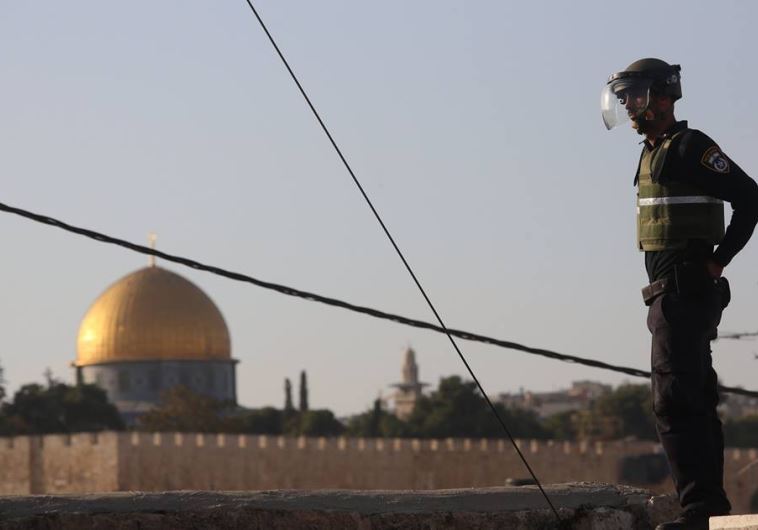Israel hopes to coordinate Temple Mount camera installation ‘as soon as possible’
Ban: I hope security steps can demonstrate restraint, respect for sanctity of area, Wakf yet to decide on camera proposal
 A Border Police officer overlooks Temple Mount and the Western Wall(photo credit: MARC ISRAEL SELLEM)
A Border Police officer overlooks Temple Mount and the Western Wall(photo credit: MARC ISRAEL SELLEM)